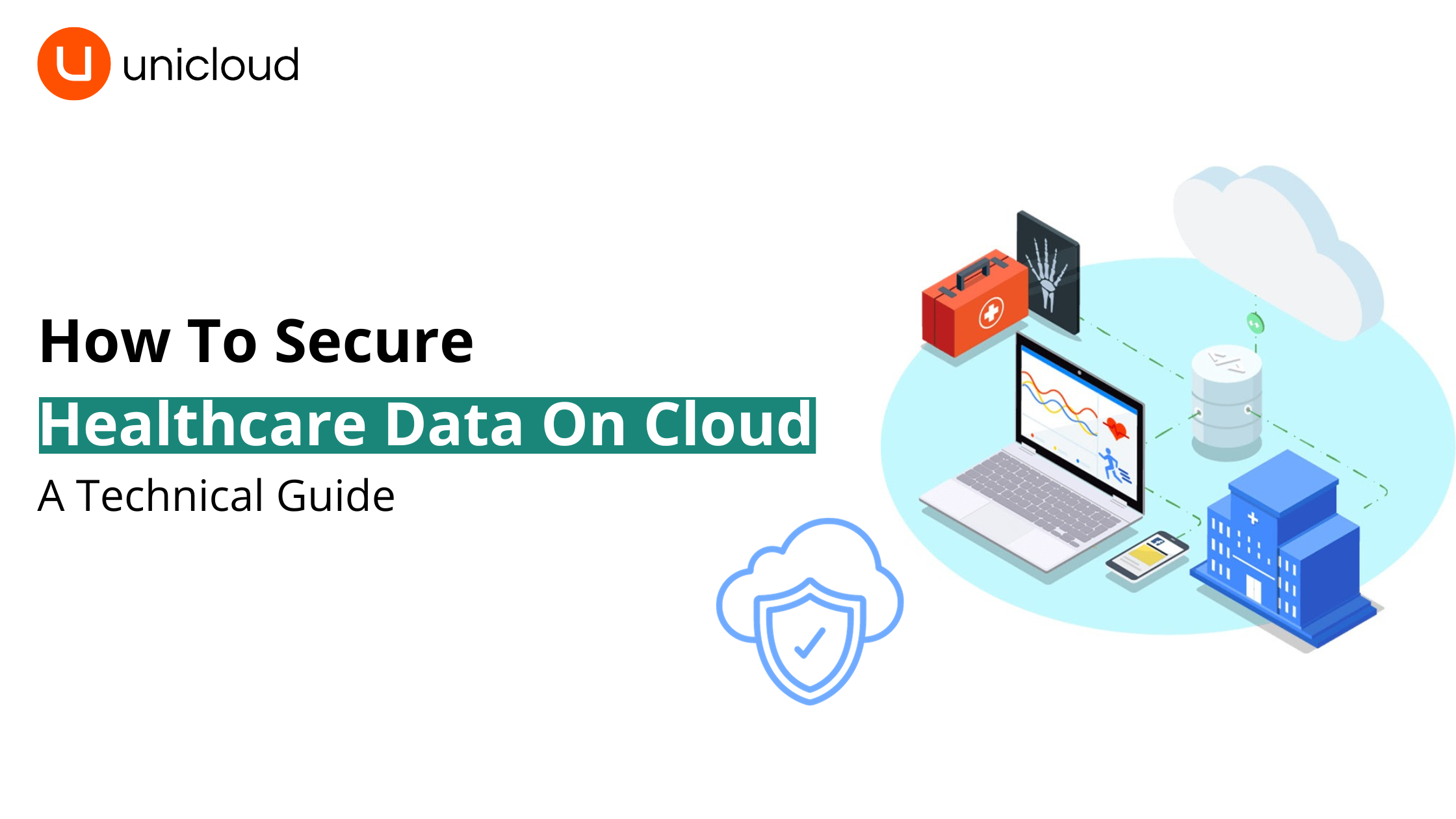
Healthcare data is among the most sensitive and valuable information stored in the digital realm. With the increasing adoption of cloud technologies in the healthcare sector, securing this data has become paramount. In this blog post, we’ll delve into the technical aspects of securing healthcare data on the cloud, focusing on best practices, methodologies, and tools.
1. Understanding Healthcare Data Compliance Regulations
HIPAA Compliance
The Health Insurance Portability and Accountability Act (HIPAA) sets the standard for protecting sensitive patient data. Adhering to HIPAA requires implementing specific technical safeguards, including:
- Access Control: Utilizing IAM roles and policies to restrict access to authorized personnel.
- Data Encryption: Encrypting data at rest and in transit using protocols like TLS and AES.
- Audit Logging: Maintaining detailed logs of all access and modifications to healthcare data.
2. Implementing Robust Encryption Strategies
Data Encryption at Rest
- AWS KMS: Utilizing AWS Key Management Service to manage cryptographic keys.
- Azure Disk Encryption: Leveraging Azure’s built-in encryption for virtual machine disks.
Data Encryption in Transit
- TLS Protocols: Implementing Transport Layer Security for secure data transmission.
- VPN Connections: Establishing Virtual Private Network connections for secure remote access.
3. Access Management and Identity Verification
- Multi-Factor Authentication (MFA): Requiring multiple forms of verification to ensure authorized access.
- Role-Based Access Control (RBAC): Defining roles and permissions to control access to healthcare data.
4. Secure Containerization and Orchestration
- Docker Security: Implementing secure Docker images and container runtime policies.
- Kubernetes Security: Utilizing Kubernetes RBAC and PodSecurityPolicies to secure container orchestration.
5. Monitoring and Threat Detection
- AWS CloudWatch: Leveraging AWS CloudWatch for real-time monitoring and alerting.
- Azure Security Center: Utilizing Azure’s threat detection and response capabilities.
6. Implementing a Secure DevOps Pipeline (DevSecOps)
- Automated Security Scanning: Integrating tools like SonarQube for continuous security scanning.
- Secure Code Practices: Implementing secure coding standards and regular code reviews.
7. Disaster Recovery and Backup Strategies
- Automated Backups: Scheduling regular backups using tools like AWS Backup or Azure Backup.
- Disaster Recovery Planning: Creating and testing disaster recovery plans to ensure data integrity and availability.
8. Data Privacy and Patient Consent Management
In addition to technical safeguards, healthcare organizations must also consider the ethical aspects of data privacy and patient consent. Implementing robust privacy policies and consent management practices is essential to ensure compliance with regulations and build trust with patients.
Privacy by Design:
- Data Minimization: Collecting only the necessary data required for specific healthcare services.
- Anonymization and Pseudonymization: Utilizing techniques to anonymize or pseudonymize patient data, thereby reducing the risk of identification.
Patient Consent Management:
- Explicit Consent: Implementing mechanisms to obtain explicit consent from patients for data collection and processing.
- Consent Revocation: Providing patients with the ability to revoke consent and request data deletion, in accordance with regulations like GDPR.
Regular Security Assessments and Training:
- Security Audits: Conducting regular security audits to identify vulnerabilities and ensure compliance with healthcare data protection standards.
- Employee Training: Providing ongoing training to healthcare staff on data privacy, security protocols, and ethical considerations, fostering a culture of security awareness.
By integrating these privacy and consent management practices into the overall cloud security strategy, healthcare organizations can further enhance the protection of sensitive patient data, align with ethical principles, and foster trust with patients and regulatory bodies.
Conclusion
Securing healthcare data on the cloud is a complex and critical task that requires a comprehensive understanding of security protocols, tools, and best practices. By implementing robust encryption, access management, containerization, monitoring, and DevSecOps practices, healthcare organizations can ensure the confidentiality, integrity, and availability of sensitive patient data.
At Unicloud, we specialize in providing tailored cloud security solutions for the healthcare industry. Our team of certified cloud security experts is equipped to guide you through the intricate landscape of healthcare data security, ensuring compliance with regulations and delivering peace of mind.
Contact Unicloud today to discuss your healthcare data security needs and discover how our specialized solutions can safeguard your valuable information in the cloud.
